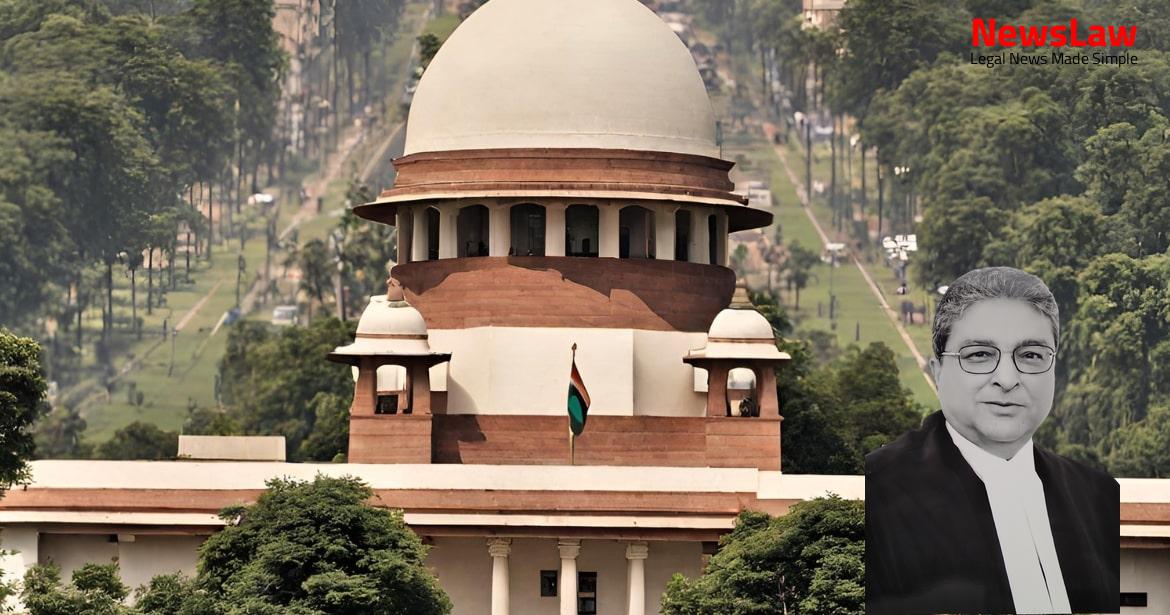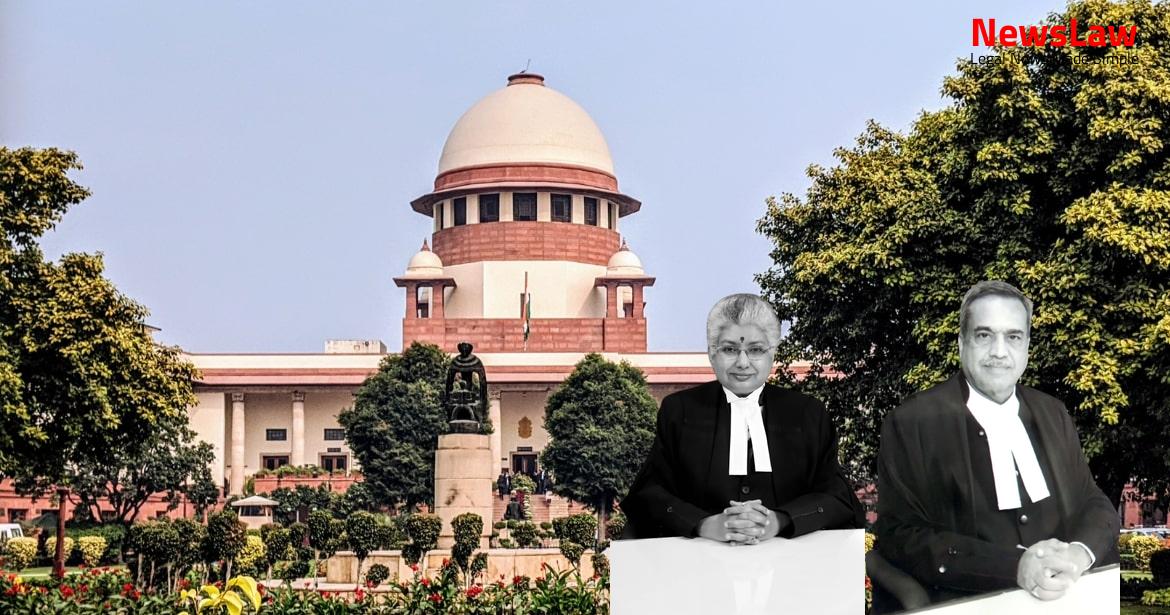In a significant legal battle, Wellman Incandescent India Ltd. faced off against WBSIDC in a case concerning the termination of a lease agreement. The Supreme Court of India’s judgement in this matter holds crucial implications for industrial property leases and the rights of lessors and lessees. Let’s delve into the details of this landmark case.
Facts
- Wellman Incandescent India Ltd. took over the assets and business of Wellman Smith Owen Engineering Corporation.
- WBSIDC was assigned the rights of lease of the premises in question by the West Bengal state.
- Wellman mortgaged the leased property to IDBI for obtaining financial assistance.
- Wellman faced financial difficulties and approached BIFR for assistance under SICA.
- WBSIDC determined the lease terms and took possession of the property.
- SASF, constituted by the Central Government, acquired the stressed assets of IDBI, including those related to Wellman.
- The original lease agreement between Wellman Smith Owen Engineering Corporation and the UK lessor started in April 1962.
- The properties were excluded from the winding up process due to non-compliance with lease conditions regarding industrial activity.
- The leasehold rights were terminated as the original lessee ceased using the properties for manufacturing activity.
- No manufacturing process had been carried out in the demised premises for over six months.
- The Single Judge and Division Bench upheld WBSIDC’s plea for possession based on lease conditions.
- The Division Bench rejected the appeal by SASF, resulting in potential loss of public funds over Rs. 42 crores.
Also Read: Legal Analysis of Claim for Loss of Profit in Delayed Contract
Arguments
- WBSIDC’s application for possession of leasehold properties was allowed concurrently with the liquidation proceedings.
- WBSIDC secured advances from IDBI through equitable mortgages of leasehold properties.
- SASF, as a mortgagee, was challenging WBSIDC’s right to forfeit the lease, despite the lessor having no objection.
- The official liquidator took charge of the assets after Wellman went into liquidation.
- The lease forfeiture was never contested by the lessee through the official liquidator.
- The lease was for a substantial period of 90 years, making the forfeiture seem drastic for a minor violation.
- WBSIDC’s counsel emphasized that a mortgagee cannot have superior rights to the mortgagor.
- The decision in Phatu Rochiram Mulchandani v. Karnataka Industrial Areas Development Board was cited to support WBSIDC’s actions in the liquidation proceedings.
- The company was allotted industrial premises on two different occasions during its liquidation.
Also Read: Public Declaration Requirement in Marriage under Hindu Marriage Act
Analysis
- The Board’s function is to promote and assist in the establishment, growth, and development of industries in industrial areas.
- The Board can provide amenities or carry out development on leased land if the lessee fails to do so.
- Penalty is imposed for construction or use of land and buildings against the terms of holding.
- Prior court permission is required for attachment, distress, or execution of properties or effects of the Company.
- Cancellation notice alone does not require court permission as it doesn’t amount to attachment or distress.
- Possession of land cannot be taken post-commencement of winding up without court permission.
- Board had the right to terminate the lease agreement according to the KIAD Act.
- The Board didn’t need court permission before canceling the lease; possession could be taken post-cancellation.
- The Board could enter land for inspection, survey, valuation, etc., as authorized.
- Regulations can be made by the Board through notification for consistency with the Act and Rules.
- The Act aims to establish industrial areas, promote industry development, and set up the Industrial Areas Development Board.
- Declaration, alteration of industrial areas, and Board constitution are detailed in specific chapters of the Act.
- High Court had previously dismissed a writ petition related to this matter.
- The Board was justified in terminating the lease due to the Company’s failure to fulfill obligations.
- The Company’s breach of not completing the project within the agreed timeframe justified lease termination.
- Board’s actions were legal and valid based on the terms of the lease agreement and the KIAD Act.
- The finding that the lessor had the right to determine the lease has been finalized.
- The mortgagee, represented by the appellant, cannot claim rights superior to the lessee.
- This finding is consistent with established legal principles as per the Phatu Rochiram Mulchandani case.
Also Read: OCI Cardholders’ Rights and Retroactive Notifications
Decision
- The appeal was dismissed
- No order was given as to costs
Case Title: STRESSED ASSETS STABILIZATION FUND Vs. WEST BENGAL SMALL IND. DEVELOPMENT CORPORATION LTD. AND ANR.
Case Number: C.A. No.-004139-004139 / 2008



